- Home
- Norman Mailer
An American Dream Page 2
An American Dream Read online
Page 2
I had spent the last year parting company with my wife. We had been married most intimately and often most unhappily for eight years, and for the last five I had been trying to evacuate my expeditionary army, that force of hopes, all-out need, plain virile desire and commitment which I had spent on her. It was a losing war, and I wanted to withdraw, count my dead, and look for love in another land, but she was a great bitch, Deborah, a lioness of the species: unconditional surrender was her only raw meat. A Great Bitch has losses to calculate after all if the gent gets away. For ideally a Great Bitch delivers extermination to any bucko brave enough to take carnal knowledge of her. She somehow fails in her role (as psychoanalysts, those frustrated stage directors, might say) if the lover escapes without being maimed to the nines or nailed to the mast. And Deborah had gotten her hooks into me, eight years ago she had clinched the hooks and they had given birth to other hooks. Living with her I was murderous; attempting to separate, suicide came into me. Some psychic bombardment of the will to live had begun, a new particle of love’s mysterious atom had been discovered—the itch to jump. I had been on a balcony ten stories high talking to my host, the cocktail party was done, and we stood looking down on Sutton Place, not talking about Deborah—what else was there not to talk about this last long year?—and I was wondering, as indeed often I did, whether this old buddy, comfortably drunk with me, a pleasant-looking stud of forty-six, with a waist kept trim by squash at the New York A.C. and a rogue’s look in the eye kept alive by corners he cut making his little brokerage prosper (not to speak of the women he met for lunch—he had a flair, this buddy), well, wondering whether his concern was so true for me as the timbre of his voice, now sincere, now so place-your-bets sincere, or if he’d been banging my blessed Deborah five times a year, five times each of the last eight years, forty glorious bangeroos upon the unconscious horror of my back (something so hot they could hardly contain themselves, and kept it down to five each twelve-month out of delicacy, out of a neatness which recognized that if ever they let themselves go, it would all go crash and boom) well, as I say, I stood there, not knowing if Old Buddy was in the Carnal Delights, or a true sword and friend, or even both—there was a wife or two after all with whom I had done the five times eight years bit, and sweet was the prize—no offering like a wife so determined to claw her man that months of hatred are converted to Instant Sweet for the passing stud in the hay, and I felt all the stirrings of real compassion talking to her husband next time out. So all was possible—either this guy before me now suffered conceivably a true concern for an old friend and his difficult wife, or was part of the difficulty, or indeed yes was both, both, precisely like me so many times, and before the straight-out complexity of this, the simple incalculable difficulty of ever knowing what is true with an interesting woman, I was lost. I tell you in shame that for those eight years I could point with certainty to only five bona-fide confessed infidelities by Deborah; she had indeed announced each of them to me, each an accent, a transition, a concrete step in the descent of our marriage, a curtain to each act in a five-act play: but beyond this, in the great unknown, were anywhere from two hundred to precisely no infidelities, for Deborah was an artist in that great dialectic of uncertainty where lies lead to truth, and truth begets the shimmering of lies—“Are you mad?” she would ask when I would disclose my suspicions of a particular gentleman or lad, “Why, he’s a boy,” or “Don’t you know he’s repulsive to me,” which she always said in her best London voice, five years of Catholic schooling in England contributing much to the patrician parts of her American tongue. Yes, before the uncertainty of this, feeling like a scientist of love whose instruments of detection were either wholly inaccurate or unverifiably acute, I stood up in the middle of my conversation with old friend rogue, and simply heaved my cakes, all the gin-and-tonics, anchovy paste, pigs-in-blankets, shrimp cum cocktail sauce, and last six belts of bourbon zip over his balcony and down in a burning cascade of glob and glottle, a thundering herd of love’s poisoned hoofs.
“Oh, my God,” said the friend, out-rogued for once.
“Stow it,” I grunted.
“My God,” he repeated, “it’s dropped on the second floor.”
We had both expected as a matter of course—the seizure was so pure—that my paint would land on the doorman’s ears. Instead, some tenant would soon complain. The sheer mechanics of it had me next to laughter—how did one send an awning to the cleaners?
“I suppose I’ve got to tell them,” said the friend.
“Let the rain wash away what the moonlight fails to bless,” said I, in a tone I had come to abhor, a sort of boozed Connecticut gentry in the voice, putting together poetic phrases which were unpoetic, part of the product of living with Deborah’s near-English lilts and lecturing too many classes over too many unfulfilled hours. “In fact, old buddy, leave me. If you can bear it.”
So I stood on the balcony by myself and stared at the moon which was full and very low. I had a moment then. For the moon spoke back to me. By which I do not mean that I heard voices, or Luna and I indulged in the whimsy of a dialogue, no, truly it was worse than that. Something in the deep of that full moon, some tender and not so innocent radiance traveled fast as the thought of lightning across our night sky, out from the depths of the dead in those caverns of the moon, out and a leap through space and into me. And suddenly I understood the moon. Believe it if you will. The only true journey of knowledge is from the depth of one being to the heart of another and I was nothing but open raw depths at that instant alone on the balcony, looking down on Sutton Place, the spirits of the food and drink I had ingested wrenched out of my belly and upper gut, leaving me in raw Being, there were clefts and rents which cut like geological faults right through all the lead and concrete and kapok and leather of my ego, that mutilated piece of insulation, I could feel my Being, ridiculous enough, what! I could feel lights shifting inside myself, drifting like vapors over the broken rocks of my ego while a forest of small nerves jumped up, foul in their odor, smelling for all the world like the rotten, carious shudder of a decayed tooth. Half-drunk, half-sick, half on the balcony, half off, for I had put my leg over the balustrade as if I were able better to breathe with one toe pointing at the moon, I looked into my Being, all that lovely light and rotting nerve, and proceeded to listen. Which is to say, I looked out deep into that shimmer of past death and new madness, that platinum lady with her silver light, and she was in my ear, I could hear her music: “Come to me,” she was saying, “Come now. Now!” and I could feel my other foot go over the balustrade, and I was standing on the wrong side of the railing, only my fingers (since my thumbs were up and pointing like horns at the moon), only my eight fingers to hold me from the plunge. But it was worse than that. Because I knew I would fly. My body would drop like a sack, down with it, bag of clothes, bones, and all, but I would rise, the part of me which spoke and thought and had its glimpses of the landscape of my Being, would soar, would rise, would leap the miles of darkness to that moon. Like a lion would I join the legions of the past and share their power. “Come now,” said the moon, “now is your moment. What joy in the flight.” And I actually let one hand go. It was my left. Instinct was telling me to die.
Which instinct and where? The right hand tightened in its grip, and I whipped half-around to the balcony, almost banging into the rail with my breast, my back now to the street and the sky. Only if I turned my head could I see the Lady.
“Drop,” she said one more time, but the moment had gone. Now if I dropped, all of me passed down. There would be no trip.
“You can’t die yet,” said the formal part of my brain, “you haven’t done your work.”
“Yes,” said the moon, “you haven’t done your work, but you’ve lived your life, and you are dead with it.”
“Let me be not all dead,” I cried to myself, and slipped back over the rail, and dropped into a chair. I was sick. I assure you I was sick in a way I had never been sick before. Deep in a fever, or bump
ing through the rapids of a bad nausea, one’s soul could always speak to one, “Look what this illness is doing to us, you coward,” that voice might say and one would shake or twist in the fever, but that at least was a nightmare. This illness now, huddling in the deck chair, was an extinction. I could feel what was good in me going away, going away perhaps forever, rising after all to the moon, my courage, my wit, ambition and hope. Nothing but sickness and dung remained in the sack of my torso. And the moon looked back, baleful in her radiance now. Will you understand me if I say that at that moment I felt the other illness come to me, that I knew then if it took twenty years or forty for my death, that if I died from a revolt of the cells, a growth against the design of my organs, that this was the moment it all began, this was the hour when the cells took their leap? Never have I known such a sickening—the retaliation of the moon was complete. What an utter suffocation of my faculties, as if I had disappointed a lady and now must eat the cold tapeworm of her displeasure. Nothing noble seemed to remain of me.
Well, I got up from that deck chair and back to the living room which felt like an indoor pool. So steamy was the air on my stomach, just so ultra-violet seemed the light. I must have been in some far-gone state because there was an aureole about each electric light, each bulb stood out like a personage, and I remember thinking: of course, this is how they appeared to Van Gogh at the end.
“You don’t look too well,” said the host.
“Well, buddy, I feel worse than I look. Give me a drop of blood, will you?”
The bourbon tasted like linseed oil and lit a low smoke in the liverish caverns of my belly. I could feel some effulgence of the moon glowing through the windows and dread came back like a hoot from a bully on the street outside.
“It’s a great night for the race,” I said.
“What race?” said my host. It was obvious he wished me to be gone.
“The human race. Ho. Ho. Ho,” I said.
“Steve!”
“I’m on my way.”
My hand offered him the glass as if it were the gift of a shiny apple, and then I strolled, closing my host’s door so carefully it failed to shut. I turned around to jam it once again and felt a force on me as palpable as a magnetic field. “Get out of here,” said a voice in my brain. The elevator took too long. I rang, and rang again, but there was not a sound from the cable or the cage. I broke into a galloping sweat. “If you’re not out of here in thirty seconds,” said the same voice, “your new disease takes another step. Metastases are made of moments like this, lover-man.” So I bolted down the stairs. It was ten flights taken in two banks each, twenty banks of concrete steps, cement-block walls painted guacamole-green, blood-iron railing made of pipe, and I flew down pursued by panic, because I had lost my sense of being alive and here on earth, it was more as if I had died and did not altogether know it, this might be the way it was for the first hour of death if you chose to die in bed—you could blunder through some endless repetition believing your life was still here.
The door to the lobby was locked. Of course. I tired of beating on it with my hands—I was half certain I was really gone—and shifted to one foot, took off a shoe, began to whang away. The doorman opened in a pet. “What’s going on?” he asked. “I go up in the elevator and you ain’t there.” He was Italian, some stout dull lump of rejection from the Mafia—they had assigned him to this job about the time they decided he was hopeless for waiting on tables in a hopeless bar. “Ain’t you got any consideration?” he asked.
“Up your ass, friend.” I put on my shoe and walked past him. As I was going to the street he muttered behind me, “Up yours too.”
Walking fast I was two blocks away before I saw I had forgotten my overcoat. It was a night in late March, it was cold, it was much colder now than it had been on the balcony, and I shivered from the realization, the wind reaching in to the forest of nerves on my gut. I could feel those nerves wriggling now like a hive of worms; they were flinching as the wind rode by. A familiar misery was on me. I was separate from Deborah as much as a week or two at a time, but there would come a moment, there would always come a moment, after everything else had gone, when it was impossible not to call her. At moments like that I would feel as if I had committed hari-kari and was walking about with my chest separated from my groin. It was a moment which was physically insupportable, it was the remains of my love for her, love draining from the wound, leaving behind its sense of desolation as if all the love I possessed were being lost and some doom whose dimensions I could hardly glimpse was getting ready on the consequence. I hated her more than not by now, my life with her had been a series of successes cancelled by quick failures, and I knew so far as I could still keep any confidence that she had done her best to birth each loss, she was an artist at sucking the marrow from a broken bone, she worked each side of the street with a skill shared only in common by the best of streetwalkers and the most professional of heiresses. Once, for an instance, at a party, a friend of hers, a man I was never able to like, a man who never liked me, had proceeded to beat on me so well for “celebrity” on television that he was carried away. He invited me to box. Well, we were both drunk. But when it came to boxing I was a good torero de salón. I was not bad with four drinks and furniture to circle about. So we sparred to the grim amusement and wild consternation of the ladies, the sober evaluation of the gents. I was feeling mean. I roughed him up a hitch or two in the clinches, I slapped him at will with my jab, holding my hand open but swinging the slaps in, he was such an ass, and after it went on for a minute, he was beginning in compensation to throw his punches as hard (and wild) as he could, whereas I was deepening into concentration. Which is the first reward of the ring. I was sliding my moves off the look in his eye and the shift of his fists, I had settled into the calm of a pregnant typhoon, the kill was sweet and up in me, I could feel it twenty moves away, he was going to finish with three slugs to the belly and his arms apart, that is what it would take, his eye was sweaty and I was going keen. Just then his wife broke in. “Stop!” she cried, “absolutely stop!” and came between us.
He was a bad type. “Why’d you stop it?” he asked. “It was getting to be fun.”
“Fun!” she said, “you were going to get killed.”
Well, the point to the story is that when I turned around to wink at Deborah—she had heard me talk much about boxing but had never seen me fight—I discovered she had quit the room.
“Of course I left,” she said later, “it was a sight, bullying that poor man.”
“Poor? He’s bigger than I am.”
“And ten years older.”
That took the taste away. Next time some passing friend invited me to spar at a party—not until a year later I believe, not all the parties ended in a bout—I refused. He filed the needle to a point. I still refused. When we got home, she told me I was afraid.
It was worth little to refer to the first episode. “This man, at least,” she said, “was younger than you.”
“I could have taken him.”
“I don’t believe it. Your mouth was weak, and you were perspiring.”
When I looked into myself I was not certain any longer that there had been no fear. So it took on prominence for me. I did not know any longer.
One could multiply that little puncture by a thousand; Deborah was an artist with the needle, and never pinked you twice on the same spot. (Unless it had turned to ulcer.) So I hated her, yes indeed I did, but my hatred was a cage which wired my love, and I did not know if I had the force to find my way free. Marriage to her was the armature of my ego; remove the armature and I might topple like clay. When I was altogether depressed by myself it seemed as if she were the only achievement to which I could point—I finally had been the man whom Deborah Caughlin Mangaravidi Kelly had lived with in marriage, and since she’d been notorious in her day, picking and choosing among a gallery of beaux: politicians of the first rank, racing drivers, tycoons, and her fair share of the more certified playboys o
f the Western world, she had been my entry to the big league. I had loved her with the fury of my ego, that way I loved her still, but I loved her the way a drum majorette loved the power of the band for the swell it gave to each little strut. If I was a war hero, an ex-Congressman, a professor of popular but somewhat notorious reputation, and a star of sorts on a television show which I cannot here even bear to explain, if I also had a major work on existential psychology, a herculean endeavor of six to twenty volumes which would (ideally) turn Freud on his head (but remained still in my own head) I had also the secret ambition to return to politics. I had the idea of running some day for Senator, an operation which would not be possible without the vast connections of Deborah’s clan. Of course there had never been a cent from them—we lived on the money I made even if Deborah had the accumulated tastes and habits of the money Barney Oswald Kelly had made. She claimed he had cut her off when she married me—which is possible—but I always thought she lied. It was more probable she did not trust me enough to show the buried loot. Heiresses have a scale: they surrender their heart a quarter-century before they open the purse. I did not care about the money itself, I half hated it, in fact I might have despised the money if it had not become the manifest of how unconsummated and unmasculine was the core of my force. It was like being married to a woman who would not relinquish her first lover.
At any rate, such were my parts. Without Deborah they did not add to any more than another name for the bars and gossip columns of New York. With her beside me, I had leverage, however, I was one of the more active figures of the city—no one could be certain finally that nothing large would ever come from me. But for myself the evidence made no good case: probably I did not have the strength to stand alone.

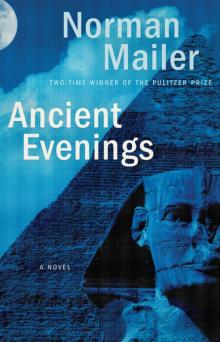 Ancient Evenings
Ancient Evenings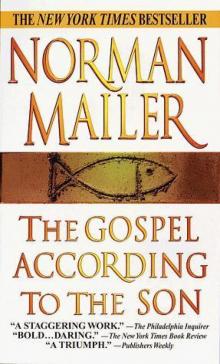 The Gospel According to the Son
The Gospel According to the Son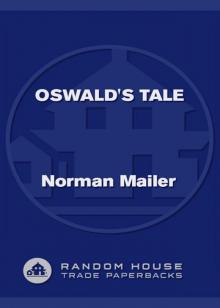 Oswald's Tale: An American Mystery
Oswald's Tale: An American Mystery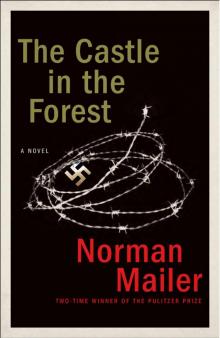 The Castle in the Forest
The Castle in the Forest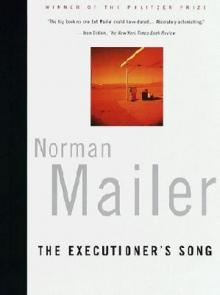 The Executioner's Song
The Executioner's Song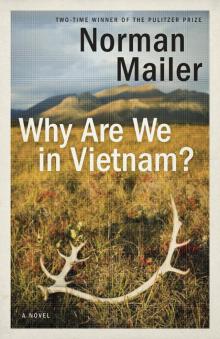 Why Are We in Vietnam?
Why Are We in Vietnam?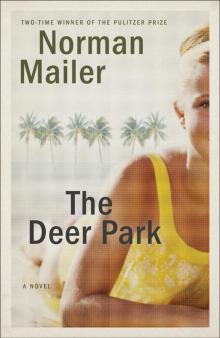 The Deer Park: A Play
The Deer Park: A Play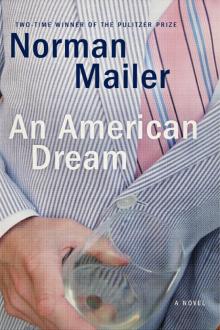 An American Dream
An American Dream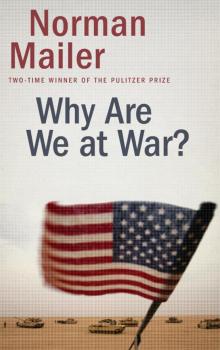 Why Are We at War?
Why Are We at War?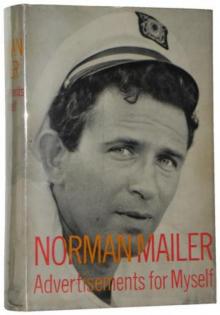 The Time of Her Time
The Time of Her Time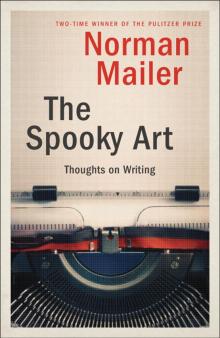 The Spooky Art: Thoughts on Writing
The Spooky Art: Thoughts on Writing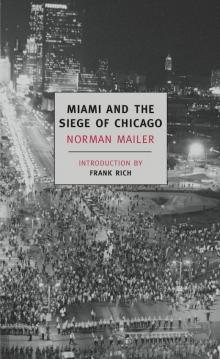 Miami and the Siege of Chicago
Miami and the Siege of Chicago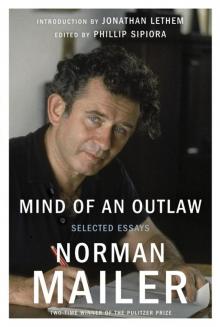 Mind of an Outlaw: Selected Essays
Mind of an Outlaw: Selected Essays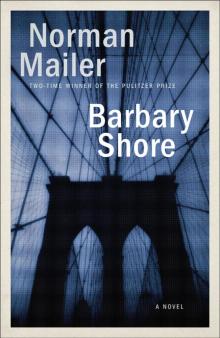 Barbary Shore
Barbary Shore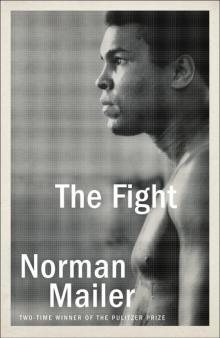 The Fight
The Fight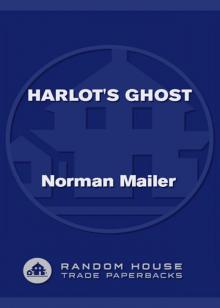 Harlot's Ghost
Harlot's Ghost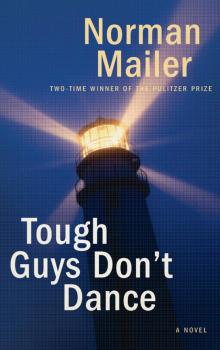 Tough Guys Don't Dance
Tough Guys Don't Dance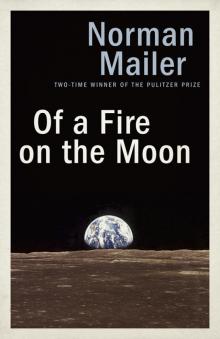 Of a Fire on the Moon
Of a Fire on the Moon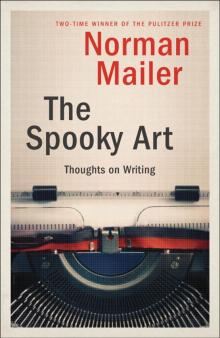 The Spooky Art
The Spooky Art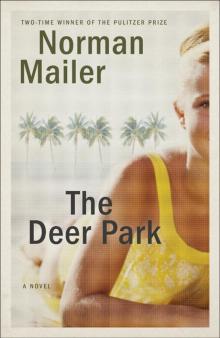 The Deer Park
The Deer Park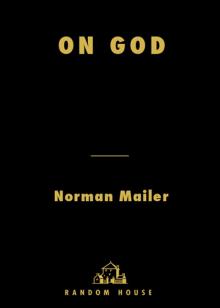 On God: An Uncommon Conversation
On God: An Uncommon Conversation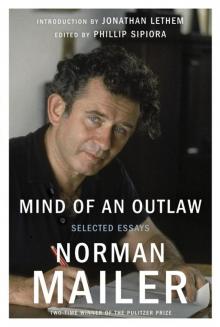 Mind of an Outlaw
Mind of an Outlaw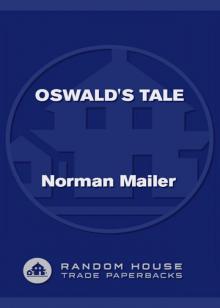 Oswald's Tale
Oswald's Tale